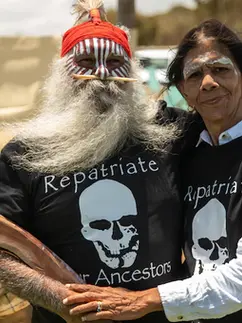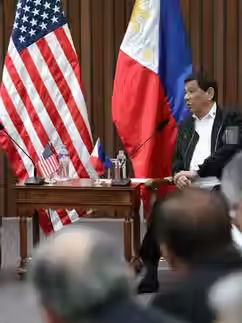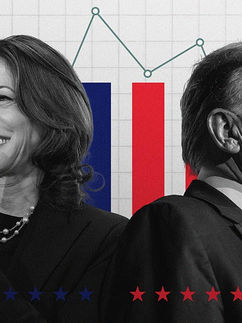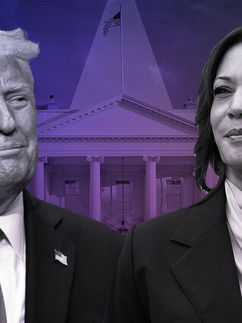Assange, Secrecy, and Diplomacy: How WikiLeaks Changed The Way We See Secrecy in Diplomacy
- Young Diplomats Society
- 14 hours ago
- 4 min read
By Gabrielle Waverley-Smith

Just seven months ago, Julian Assange, founder of WikiLeaks, was released from British prison. After the 14-year ordeal of the United States attempting to extradite Assange on espionage charges, he is free. However, the conversation around government security and the public’s right to information remains contested.
On November 28, 2010, Wikileaks released over 250,000 diplomatic cables. The exposure of sensitive government documents shook the diplomatic establishment and foreign policy. Post Cablegate, the place of secrecy in the diplomatic world, is fast-evolving and a tough territory to navigate. It seems that no one thinker, politician, or diplomat has a definitive answer. As we progress into this digital age, it is crucial to locate where the parameters lie to counter global threats effectively.
The Function of Diplomacy & Secrecy
What are the key pillars of diplomacy? In 1961, the Vienna Convention on Diplomatic Relations defined the five key diplomatic duties under Article 3. These functions include representation of the state, friendly bilateral relations, protection of interests, information, and negotiation. It is the job of diplomats to enact these five functions and do everything in their power to reduce the risk of war occurring or cease war if it has already started. However, the question remains: how critical is the principle of secrecy in making this all happen?
François de Callières wrote in his 1716 book, “The Art of Diplomacy” that secrecy is the indispensable weapon of negotiation. Callières remarks have held true throughout diplomatic history; a prime example of this is the Cienfuegos Submarine Base Crisis. In 1962, US President John F Kennedy spoke out on television during the Cuban Missile Crisis, threatening Khrushchev with a blockade and military action. Eight years after the crisis, another arose when the US discovered that the Soviet Union was creating a Cuban submarine base. This crisis was resolved by President Nixon and Henry Kissinger, crediting its resolution to the use of private diplomacy. Kissinger wrote afterwards that “rather than a dramatic confrontation on the order of 1962, we considered that quiet diplomacy was best suited to give the USSR an opportunity to withdraw without humiliation.”
The Soviet’s conceded to the United States’ request to back down—a consequence of the confidential diplomatic efforts used by the US to achieve their aims. This high-risk situation was carried out without public confrontation and escalation. Thus, this historical event demonstrates that secret diplomacy and negotiation can successfully deal with delicate situations.
How Cablegate Impacted Diplomatic Operations
On November 28, 2010, Wikileaks released over 250,000 classified US diplomatic cables. The cables exposed sensitive information about US diplomatic operations. This information produced an unflattering picture of Washington. The cables uncovered that US diplomats were ordered to spy on the United Nations leadership. Additionally, they revealed that the US State Department was bartering with various countries in an attempt to empty Guantanamo Bay. They also unveiled the US’s covert mission to launch missiles at terrorists in Yemen.
In response to Cablegate, Hilliary Clinton, the former Secretary of State, said that the release of confidential diplomatic documents had put people’s lives at risk, threatened national security, and undermined the United States’ ability to work effectively with other countries. Many states alike came out in press conferences condemning WikiLeaks and its damage to diplomatic missions. While this may have been the opinion of several state departments worldwide, various prominent media platforms came to a different consensus. The New York Times wrote that Cablegate “provides an unprecedented look at backroom bargaining by embassies around the world, brutally candid views of foreign leaders, and frank assessments of nuclear and terrorist threats.”
The New York Times is right—Cablegate provided an unprecedented look into behind-the-scenes negotiations on some of the most controversial foreign policy issues at the time. However, there was a reason such access had never been granted before. If diplomats are to perform their duties effectively, they must be able to engage in frank discussions, avoid full exposure of national security efforts, and prevent tensions from escalating due to leaked candid assessments of world leaders. But does this mean that diplomats should be granted full confidentiality on all matters at all times?
Secret Negotiations, Transparent Objectives
The principle of secrecy in diplomacy and government, in general, is an ever-evolving issue within the digital age. While greater openness in the details of specific operations may not be necessary, Wikileaks has highlighted a need for greater transparency in the overarching objectives of these operations. John Mearsheimer, in a video posted to WikiLeaks’ X account in 2024, noted that “liberal democracies sometimes go to great lengths to hide their actions or their policies from public view, which makes it almost impossible for the public to evaluate and criticise their behaviour. Given that governments sometimes act foolishly, even recklessly, this is not a good situation.” President Obama shared this sentiment on a trip to Shanghai in 2009, “The more freely information flows, the stronger the society becomes because then citizens of countries around the world can hold their own governments accountable. They can begin to think for themselves. That generates new ideas. It encourages creativity.”
Secrecy needs to be defined in a new way in diplomacy and the consciousness of the public’s mind. As Mearsheimer and Obama expressed, government accountability must be upheld to foster the health of our liberal democracies. Simultaneously, as global threats become increasingly complex, diplomats need to be able to conduct negotiations in confidentiality so that they can carry out their missions safely and effectively. Former British Ambassador Tom Fletcher succinctly puts this dichotomy— security and rights must be two sides of the same coin.
Fourteen years after Cablegate, we are still defining the parameters around what should and should not be kept secret in the world of diplomacy. Governments have and will continue to commit grave failures, and these foreign policy objectives should be shared with the public that they serve. Concurrently, diplomats need to negotiate on behalf of the public and require confidentiality to do that. We need to peddle the line between the two distinctions carefully.
Gabrielle Waverley-Smith is completing her final year of studying international relations and French at The University of Queensland. She is currently serving as the marketing executive at UQ’s United Nations Student Association. Gabrielle enjoys reading about the intersection of international relations, culture, and ideology.

















Comentários